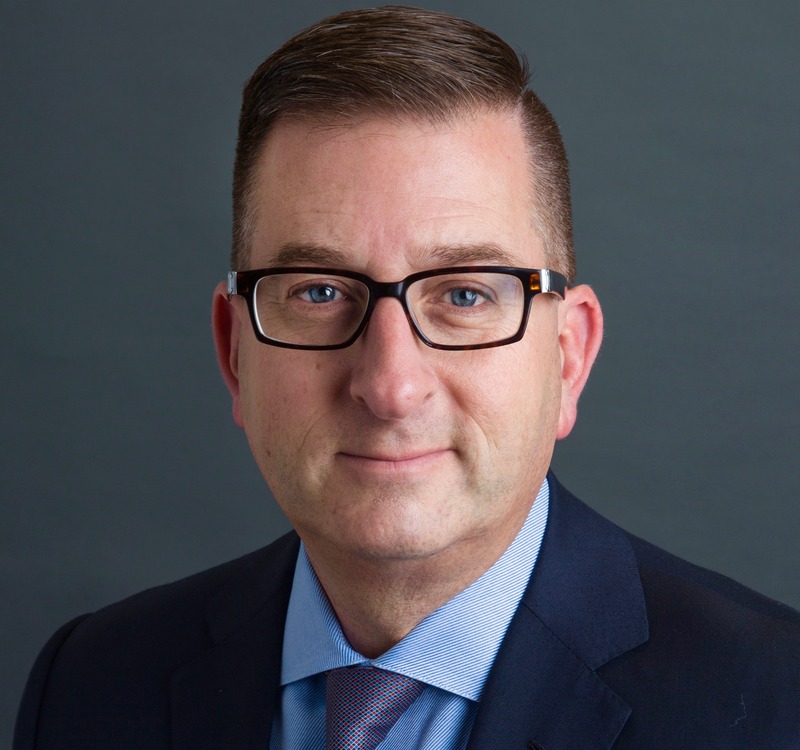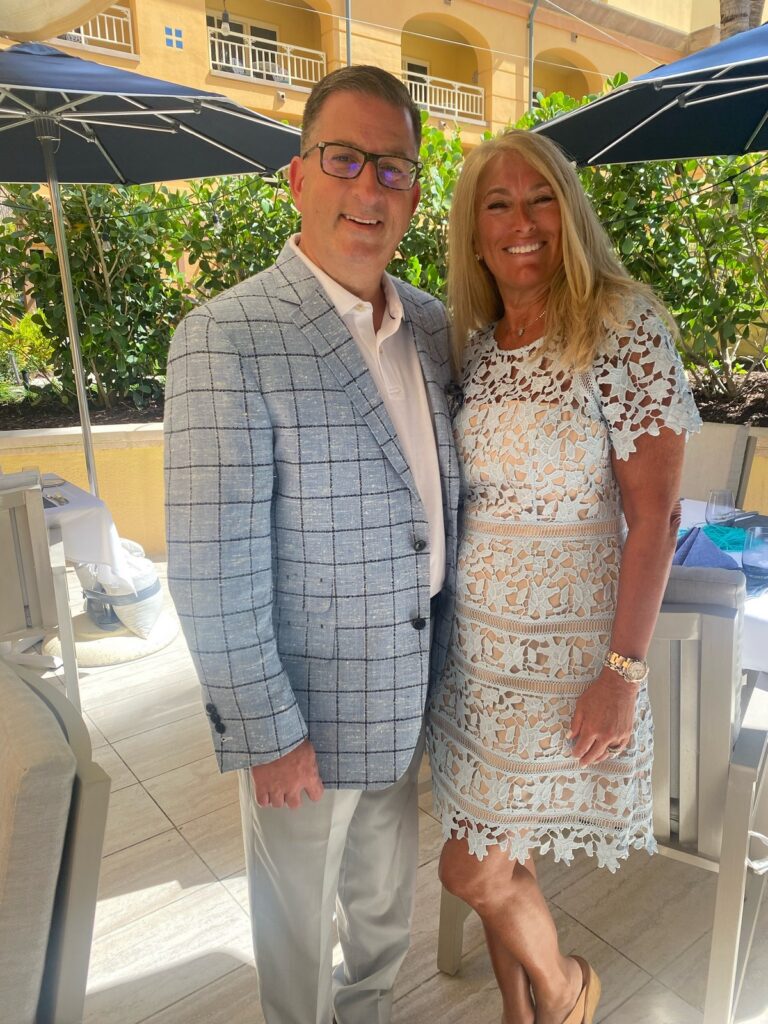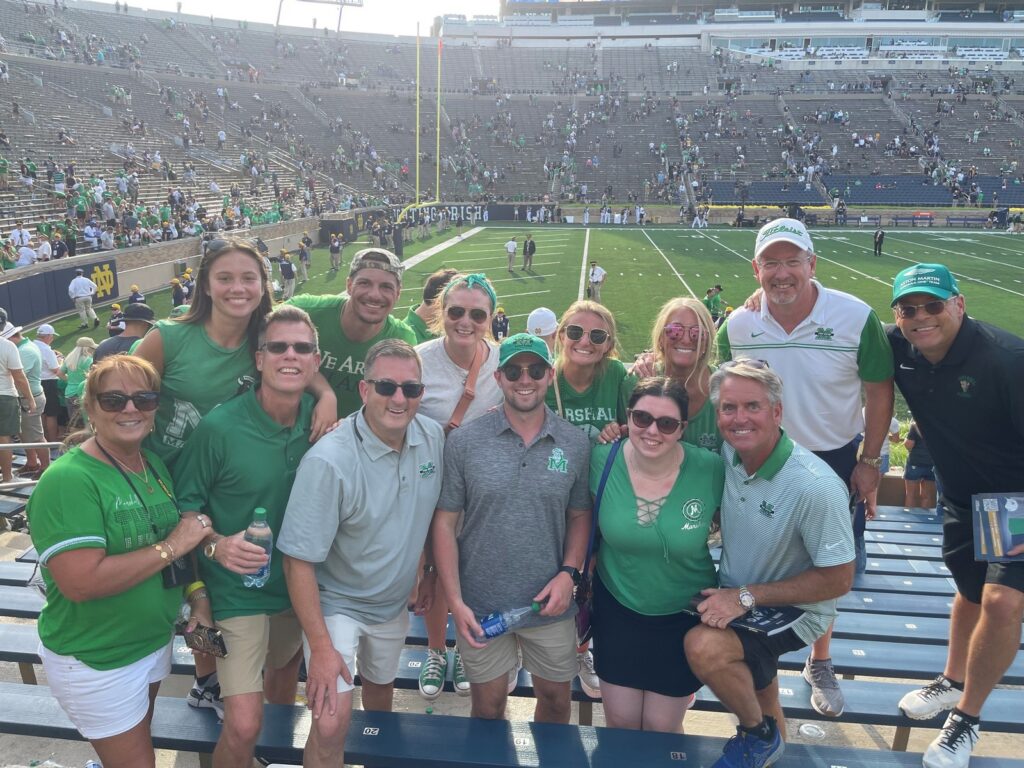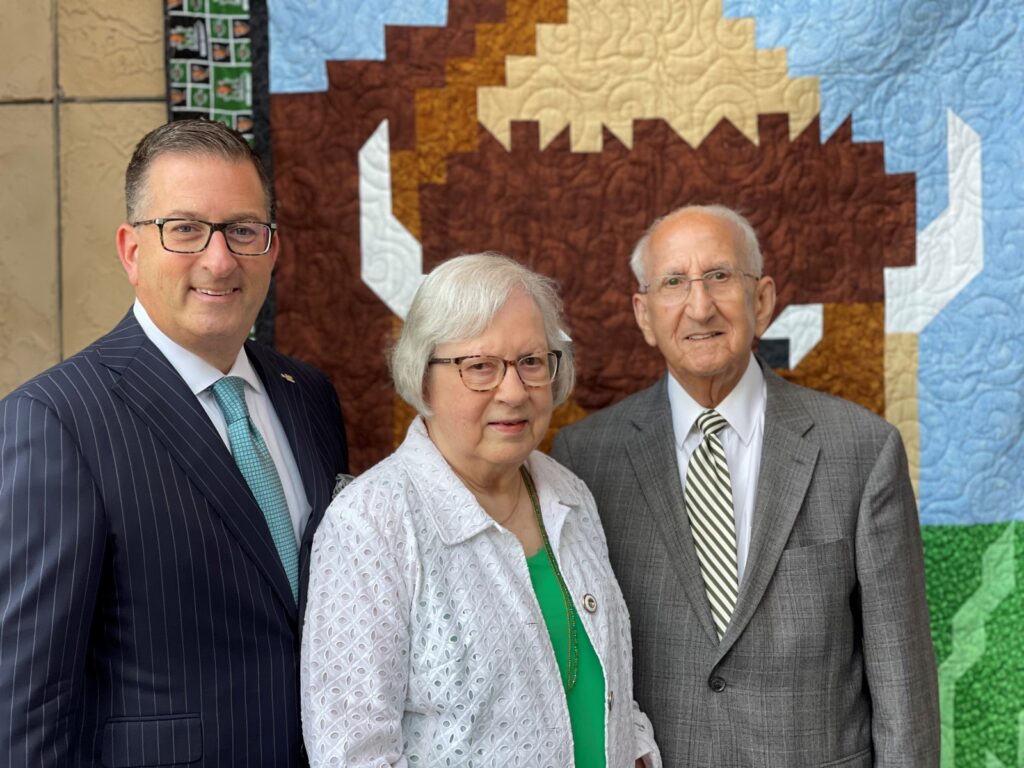
To whom much is given, much will be required (Luke 12:48).
It is an adage as old as time, and one that has guided countless individuals throughout history to carefully assess their worldly deeds and accrued possessions, giving back to others whenever possible. It is a statement as complex as it is simplistic, one that reminds those who have been blessed in life to in turn do the same for others.
For John Rahal, he counts himself as one of the lucky ones.
A Huntington native and Marshall business graduate, Rahal aspired to one day take over his grandfather’s accounting practice and make a life for himself in the Appalachian region. What he didn’t expect was that his life journey would lead him to the boardroom of a Fortune 300 company as a corporate executive.
“My career journey has far exceeded anything that I ever thought possible while I sat at my Marshall graduation in the Civic Center,” Rahal said. “I never dreamt I would have gotten here.”
Rahal is a principal with the financial-services firm Edward Jones, headquartered in St. Louis, Missouri. He earned a bachelor’s degree in accounting from Marshall in 1991, and later earned his MBA from the Kellog School of Management at Northwestern University.
Rahal joined Edward Jones as a financial advisor in 1997. In 2000 he became a limited partner with the company and was named a general principal in 2007. He’s held many roles at Edward Jones, serving on the firm’s management committee from 2012 through 2017.

Today, Rahal is responsible for Edward Jones’ transformation. In that capacity, he is responsible for anticipating and identifying roles, capabilities and strategies to enable the firm to transform towards its vision of improving the lives of clients, their families and their communities. Edward Jones is one of the largest financial services firms in North America with nearly 19,000 financial advisors.
Throughout his burgeoning career, Rahal has remained grounded in his West Virginia roots, and counts his education at Marshall as a key cog in the wheel of his professional success.
“I become more appreciative every day of the grounding and hard work instilled in me by my Huntington upbringing and Marshall University,” Rahal said. “I was in Boston recently co-leading leadership courses for Edward Jones at Harvard University. In the financial services industry, we consult and prepare people for an intangible. That intangible is a vision of what retirement might look like,. what putting a child through college looks like, or what a legacy left to the next generation might look like.
“Our roles, as financial advisors, is to create the pathway to fulfill someone’s purpose in life. I am sure there are a lot of people with a lot of purposes in West Virginia that far exceed what they might know of. That is unleashing human potential, unleashing dreams. There is just something about West Virginia that I love. I think if you are born and raised there, you get it. I want to see the people of West Virginia prosper and realize that potential, which is why I give back.”
Holding tight to that same adage about personal responsibility, Rahal has made a commitment to his alma mater and to future students that will one day call Marshall home. He established the Rahal Family Education Fund in 2016 to support the College of Business and its most pressing needs. In 2021, he donated $1 million to support the Rahal Center for Strategic Engagement within Marshall University’s Lewis College of Business.
Rahal also remains an active member of the Marshall community, contributing to the growth and success of the Lewis College of Business as an advisor, as well as supporting the Thundering Herd athletic programs and other initiatives at the university. He has also supported the new business facility being built adjacent to campus and looks forward to seeing the great things that will come from the new building.
“I look forward to seeing what great ideas, concepts, theories, businesses and entrepreneurship comes from those four walls,” Rahal said. “I love that we have brick and mortar, but what I can’t wait to see is what is produced within its walls.”
More recently, Rahal included Marshall in his estate plans with the hope that future contributions to the university will help impact the region in profound ways.

“Marshall University is an opportunity factory,” Rahal said. “I have always been intrigued by the NCAA’s advertising campaign about how many student-athletes there are in America and how few will turn pro. Almost all of them, however, will earn a degree and have an opportunity to do something amazing with their lives. I want those that go to Marshall to think in terms of what is possible.”
When speaking about the limitless potential of a Marshall education, Rahal is quick to point to another West Virginia product who has done great things in the world – current Marshall University President Brad D. Smith. Smith, from Ceredo-Kenova, spent 11 years as CEO of Intuit, transforming the company’s business model and earning high marks as one of the top CEOs in the United States.
He, too, has made his impact on Marshall through philanthropy, and Rahal noted that his vision for the university and leadership-by-example has been an inspiration to him and many others.
“It is hard not to be inspired by Brad’s commitment to our university. And for those of us who can, we need to help him by stepping up and meeting that commitment,” Rahal said. “A kid from CK that goes on to be the CEO of Intuit and a kid from Huntington being on the executive leadership team of a financial services firm, there are not too many stories like that.”
Smith recently announced the Marshall For All, Marshall Forever program at the university, placing students on a path toward a reduced or debt-free education through a unique combination of scholarships, grants and work opportunities. The program will begin this fall with a pilot program of 100 students, and Rahal said that innovative ideas like this are exactly why he continues to be engaged with the university.
“If you look at some of the most successful people in the world, I bet you will see that many left unincumbered by student debt,” Rahal said. “With that burden lifted, it allows for them to take risks and allows for them to have a growth mindset of what is possible. Student debt, on any level, limits the growth mindset and forward thinking that needs to happen to move ahead.
“Lifting student debt sounds grandiose, but it really is not. By others knowing that I, or whomever else, made the opportunity present itself for a free education through giving, hopefully they will pay it forward as well. When I hear Brad talk about Marshall For All, Marshall Forever, I think what he is saying is that the opportunity for greatness should be available to everyone and no one should be limited with a debt load that prevents them from realizing their full potential. At Marshall, we know what we do well, and we know what we don’t do, and we need to leverage that to position Marshall as a global leader.”
From a bright-eyed accountant fresh out of college, to his current role as a leading voice in the global financial services industry, Rahal lauds what Marshall has meant to his life and is eager to pay that forward to impact future generations.
“I never saw myself in a role like this, and I certainly didn’t see myself as a corporate executive,” Rahal said. “Obviously my mother and father and my grandparents had a lot to do with the molding of who I am as a businessperson, but it was Marshall that gave me the skills. I can tell you that I wouldn’t trade my time there for the world. That is why I give back to Marshall.”

